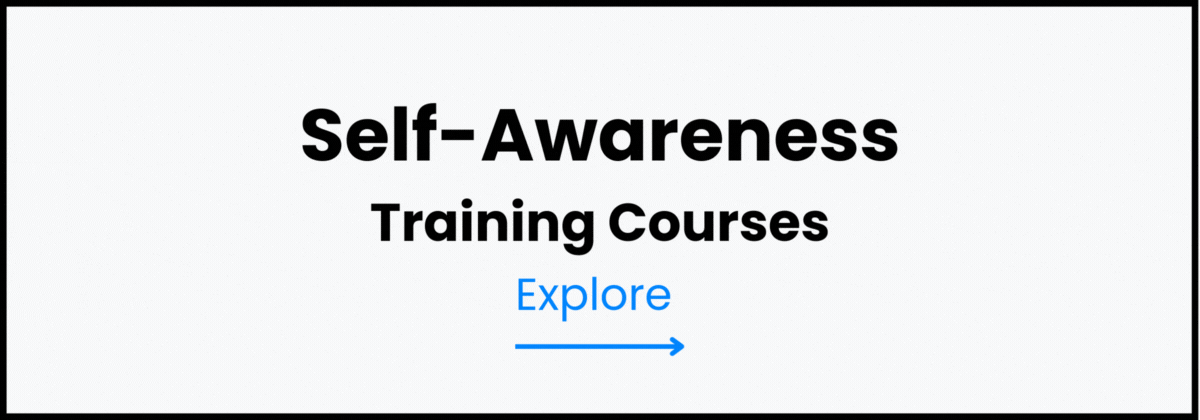Public vs Private Self-Awareness
Two Sides of Self-Understanding
Self-awareness has long been recognized as the foundation of personal growth, emotional intelligence, and effective leadership. It enables individuals to understand their strengths and weaknesses, manage emotions, and build stronger relationships. However, self-awareness is not a single dimension—it has two distinct yet interconnected forms: public self-awareness and private self-awareness.
Both types of self-awareness are critical for success in professional and personal contexts. Private self-awareness helps us understand our internal world—our values, beliefs, and emotions—while public self-awareness focuses on how we are perceived by others. When balanced, these two dimensions empower professionals to act with authenticity, adapt to different situations, and lead with influence.
In this article, we explore the difference between public and private self-awareness, their roles in the workplace, and practical steps for developing both.
What is Private Self-Awareness?
Private self-awareness refers to the ability to look inward and recognize your emotions, thoughts, and values. It is the internal lens of self-understanding, helping you assess how your behaviors align with your principles.
Role in Professional and Personal Development
- Encourages reflection on personal values and long-term goals.
- Helps individuals regulate emotions and manage stress effectively.
- Supports decision-making by providing clarity on priorities and motivations.
Benefits of Private Self-Awareness
- Clarity of purpose: Knowing why you make certain choices ensures alignment with personal values.
- Improved wellbeing: Recognizing stress triggers helps in developing healthier coping strategies.
- Authenticity: Professionals who are privately self-aware act consistently with their values, building integrity.
Risks if Imbalanced
- Overthinking or excessive self-criticism.
- Paralysis in decision-making due to overanalyzing internal states.
- Isolation if inward focus leads to neglecting external relationships.
Private self-awareness forms the foundation of authenticity but must be balanced with external awareness to avoid becoming overly self-absorbed.
Also Read: What is Self-Awareness and Why is it Important?
What is Public Self-Awareness?
Public self-awareness refers to understanding how your behavior, communication, and actions are perceived by others. It is the external lens of self-awareness that shapes how individuals present themselves in social and professional contexts.
Role in Leadership and Teamwork
- Helps professionals adapt their communication style to suit diverse audiences.
- Ensures behaviors align with organizational culture and expectations.
- Strengthens leadership by building credibility and trust through self-presentation.
Benefits of Public Self-Awareness
- Improved communication: Being aware of how messages are received ensures clarity and impact.
- Stronger influence: Leaders who understand how they are perceived can inspire and motivate effectively.
- Enhanced collaboration: Publicly self-aware individuals are more sensitive to team dynamics.
- Credibility and trust: Awareness of external perception helps build professional reputations.
Risks if Imbalanced
- Excessive self-consciousness leading to fear of judgment.
- Over-adapting behavior to please others, which may compromise authenticity.
- Stress and anxiety from focusing too much on external approval.
Public self-awareness is essential for relationship-building and professional influence but must be grounded in authenticity to remain sustainable.
How Public and Private Self-Awareness Work Together
Private and public self-awareness are two sides of the same coin. One without the other creates imbalance:
- Private self-awareness without public awareness: Professionals may act authentically but struggle to adapt to social and organizational expectations.
- Public self-awareness without private awareness: Individuals may appear adaptable but risk losing authenticity by prioritizing external approval.
When balanced, the two dimensions create holistic self-awareness:
- Private awareness anchors individuals in their values and purpose.
- Public awareness ensures they communicate and act effectively in social contexts.
For example, a leader with strong private self-awareness understands their passion for ethical decision-making. With strong public self-awareness, they can communicate this effectively to inspire trust and accountability in their team.
Developing Balanced Self-Awareness
Building both forms of self-awareness requires intentional effort. Here are proven strategies to strengthen both internal and external dimensions:
- Practice Mindfulness for Internal Awareness
Mindfulness helps individuals notice their emotions and thoughts in real time. Practices such as meditation, deep breathing, or even pausing before responding can increase private self-awareness.
- Seek Feedback for External Awareness
Constructive feedback from peers, mentors, or supervisors provides insights into how others perceive you. Tools like 360-degree feedback assessments can uncover blind spots.
- Reflect Regularly
Journaling or end-of-day reflections help connect internal values with external actions. Questions such as, “Did my actions today align with my values?” or “How did others respond to me?” enhance balance.
- Use Coaching and Mentoring
Professional coaching helps deepen private self-awareness, while mentoring provides external perspectives that strengthen public self-awareness.
- Observe Reactions in Real Time
Paying attention to how people respond during conversations or presentations is a practical way to gauge public self-awareness.
Also Read: What Does It Mean to Be Self-Aware?
Long-Term Benefits of Self-Awareness
Developing both public and private self-awareness offers significant long-term advantages for professionals and organizations:
- Stronger adaptability – Professionals can adjust to different situations while staying true to their values.
- More effective leadership – Leaders inspire trust when they combine authenticity with awareness of perception.
- Enhanced emotional intelligence – Balanced self-awareness strengthens empathy, collaboration, and conflict management.
- Improved decision-making – Awareness of internal drivers and external expectations leads to better choices.
- Career growth – Self-aware professionals are often more confident, respected, and prepared for leadership roles.
- Positive organizational culture – Teams led by self-aware leaders are more engaged, resilient, and productive.
Recommended Trainings
Self-awareness is a skill that can be nurtured and enhanced through structured learning. EuroMaTech offers a range of specialized courses designed to develop both internal and external dimensions of self-awareness:
- Self-Awareness Training Courses – comprehensive programs to strengthen personal and professional self-awareness.
- Adaptability Course – builds flexibility and resilience by aligning internal awareness with external demands.
- Leading with Passion Course – focuses on authentic leadership and the role of self-awareness in inspiring others.
- Mastering Emotional Intelligence Skills for Excellent Leadership Course – develops emotional intelligence using self-awareness as the foundation for leadership excellence.
These courses equip professionals with the insights and tools to balance private and public self-awareness for long-term success.
Building a Complete Picture of Self-Awareness
Public and private self-awareness are not competing forces—they are complementary dimensions that, when balanced, create confident, authentic, and influential professionals. Private self-awareness ensures clarity of values and emotions, while public self-awareness ensures behavior aligns with external expectations.
Together, they provide the foundation for adaptability, emotional intelligence, and leadership effectiveness. By cultivating both, professionals can build stronger relationships, enhance their careers, and contribute meaningfully to organizational success. Also Read: What is NPV (Net Present Value)?
Explore Courses From Our Top Categories:
➡️Business Training Courses – ➡️ Data Training Courses – ➡️ Technical Training Courses – ➡️ HSSE Training Courses





